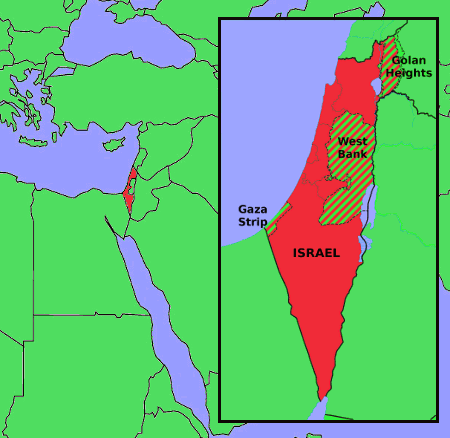
Circle the area on this map

C. The area was the British Mandate of Palestine, and it was once part of the ancient Roman province of Palestine. The Palestine Mandate was divided during fighting between the newly created state of Israel and neighboring Arab states in 1948. Israel captured and occupied the West Bank and Gaza during another war with its Arab neighbors in 1967.
A. According to the Bible, both Jewish Temples stood at the Temple Mount. It is the holiest site in Judaism which regards it as the place where God's divine presence is manifested more than any other place. Muslims consider it Islam's third-holiest site and the place where Muhammad ascended to heaven.
D. Many Israeli leaders fear that a growing Arab population threatens the nation's status as a Jewish homeland. Israel has given all Jews the right of return and to live in Israel and gain Israeli citizenship. About 1.7 million Arabs whose families remained in Israel when the nation was established are Israeli citizens, but millions of Arabs who fled Israel or live in the West Bank and Gaza are not.
B. Intifada is an Arabic word for “shake” which is popularly translated into English as “uprising, resistance or rebellion.” Palestinian Intifadas in 1987-1991 and 2000-2005 were triggered by clashes with Israeli military forces and disputes over religious sites. A mufti is a scholar who issues a fatwa, or legal opinion on Islamic law. The Hajj is an Islamic pilgrimage.